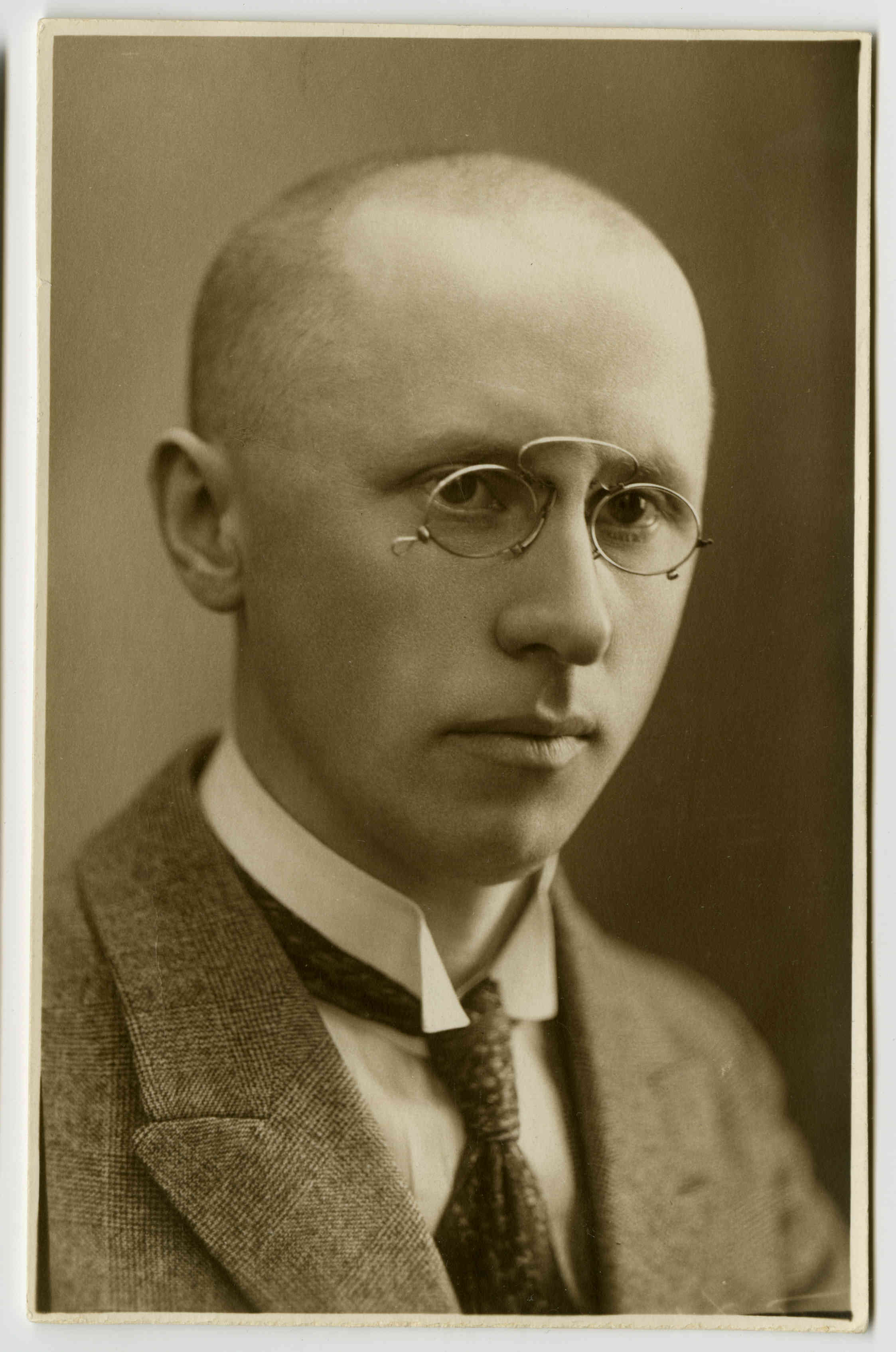
Rudolf Reiman
Rudolf Reiman (also Reimann, 25 October 1893 – 6 October 1957) was a poet, short story writer, playwright and educator. His verses are characterised by great technical mastery but by also abstractness in expressing emotions.
Reiman was born at Mõdriku village in Virumaa County in the family of a schoolmaster. From 1905–1909, he attended Rakvere town school and from 1909–1910 teacher training courses at the same school where he acquired the qualification of a primary school teacher. At the courses, he became a close friend with Jüri Parijõgi who later became a youth writer. In these years, Rudolf Reiman made his first attempts at writing, which were published in the magazine Eesti Kodu and elsewhere. From 1911, he worked as a teacher at several places. From 1922–1930, he worked as a teacher of Estonian at Võru Teachers’ Seminary, later as head of several primary schools. After World War II, Reiman worked as head of Rakvere Secondary School No. 2. In 1950, he gave up working at school for health reasons.
Rudolf Reiman published his first poetry collection Lambi valgel (‘At Lamplight’) in 1914, at the age of 21. This was followed by the poetry collection Vaikus (‘Silence’, 1918), the long poem Päikeseratas (‘Sun Wheel’, 1922) and the poetry collection Läbi öö (‘Through the Night’, 1925). His last poetry collection Talvelaulud 1923–1940 (‘Winter Songs 1923–1940’) remained unpublished.
Reiman’s first poetry collections clearly reveal the influence of the poets of the Young Estonia grouping, particularly of Ernst Enno. His poetry is characterised by neoromantic and symbolist stylistic features of the period, and the poems are full of fashionable modernist and exotic words. The form of his poetry is mostly classical. He wrote many sonnets and terza rimas. The sonnet crown Öölaul (‘Night Song’) in the poetry collection Läbi öö (‘Through the Night’) is historically the second representation of this genre in Estonian literature.
Reiman’s later poetry collections foreground the author’s personal emotions and experiences. The feeling of loneliness, which has accompanied the poet throughout his life, prevails in many poems.
Reiman also wrote short prose for adults and children and a few plays. Along with fiction, he published several textbooks, readers and methodological manuals for schools.
L. P. (Translated by I. A.)
Books in Estonian
Poetry
Lambi valgel. Jurjev: J. Zirk, 1914. 107 lk.
Vaikus: 1915–1917. Tartu: J. Zirk, 1918. 64 lk.
Päikseratas: poeem. Võru: Ellai, 1922. 29 lk.
Läbi öö: luuletusi 1918–1922. Võru: V. Pohlak, 1925. 65 lk.
Sinivalge öö. Pärnu: Penikoorem, 2014. 55 lk.
Plays
Painaja: draama 3 aktis. Võru: R. Reiman, 1925. 83 lk.
Jõulutäht: lastenäidend ühes vaatuses. Tartu: Loodus, 1934. 31 lk.



